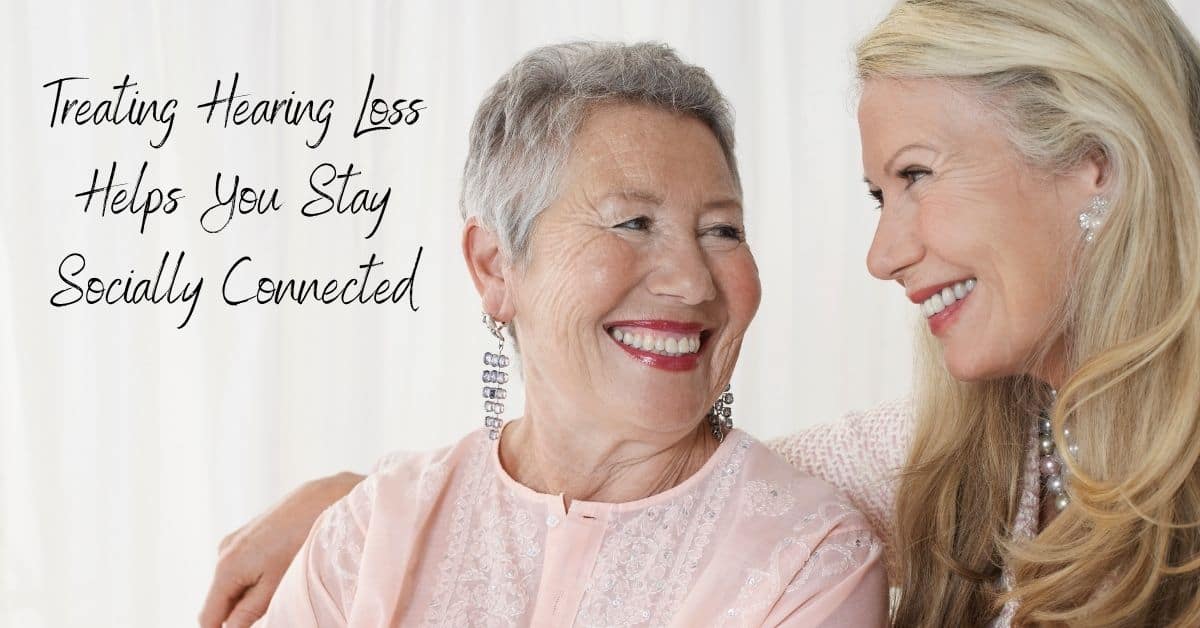With over 48 million Americans suffering from hearing loss today, it’s increasingly important to be aware of the effects it can have on our overall health. Unfortunately, those effects have been shown to be worse than we may have once thought. Hearing loss decreases our ability to balance, leading to an increased likelihood of physical injury from falling down. It can be an early indicator of an underlying cardiovascular condition, years before an acute cardiovascular incident. Untreated hearing loss can even lead to earlier onset of cognitive decline and dementia.
Hearing Loss and Loneliness, Social Isolation, Depression
Perhaps the most commonly seen consequences of untreated hearing loss are loneliness, social isolation and depression. Recent studies in loneliness indicate that, with or without hearing loss, it can be devastating when prolonged. Loneliness puts us in a heightened state of stress that tells us to seek other people, and when we don’t or can’t alleviate our loneliness with human contact, we stay at this elevated stress level. In fact, new research says that prolonged loneliness is as bad for a person’s physical health as smoking 15 cigarettes per day.
But why does hearing loss make us lonely?
Stages of Hearing Loss
In the beginning stages of hearing loss, when we first notice that we’re having trouble understanding conversation, we become fatigued more easily in social situations. Some people experiencing age-related hearing loss mistake the accompanying fatigue for a separate age-related condition, thinking they have less energy than they used to. In fact, straining to listen to conversation is draining their energy at a higher rate!
Straining to hear is not only exhausting but can become embarrassing for some. We may register the frustration on another person’s face as they repeat themself a fourth time, and eventually we may stop trying to understand altogether. Some people report that they pretend to hear more often than they should, which doesn’t usually make for satisfying conversation!
As we find ourselves more exhausted and less satisfied by social encounters, we naturally begin to avoid them. Unfortunately, we’re cutting off the lifeblood of our mental health when we start to withdraw from others. It’s a process that, once it begins, can be hard to undo. The more often we decline invitations, the less likely we are to receive them in the future, and we can easily become isolated.
Loneliness and isolation lead to depression. And meanwhile, as our hearing loss remains untreated, our auditory cortex begins to atrophy to the point where even when we get hearing aids and start treating our hearing loss, it can take months before we relearn to understand speech again.
Hearing Aids Can Help
The good news is, none of this needs to happen. When we start to have trouble hearing, we can make an appointment for a hearing test and seek the treatment we need, whether it be hearing aids or another solution. While age-related hearing loss is incurable, it is very treatable. Typically, our hearing ability will decrease to a certain degree and plateau there, so there is no need to fear that you’re going deaf, and a good set of hearing aids can restore hearing ability to near normal.
Hearing loss strains our social relationships, not only with friends we meet up with but with those who are closest to us. When we get hearing aids, we’re not only looking out for our long-term physical and mental health, but for the mental health of those we hold most dear. Hearing aids allow us to participate in life with the hearing ability we’re used to, and that’s important to keeping us healthy and active for the long term, and connected to the people who are important to us.
Make an Appointment for a Hearing Test
Hearing aids today are small and sleek, with batteries that last all day and amazing, tiny computers that make them more useful than ever before. They can not only amplify sound, but they can prioritize speech over background noise, help localize sounds in the surrounding environment, and integrate via Bluetooth and other technologies to keep you connected in all the ways that are important to you.

